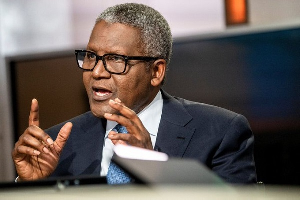We have commemorated the 59th anniversary of the drawing of the curtains over colonialism in the Gold Coast at a time we can state is the most turbulent in the country’s post-independence history.
At age 59, Ghana has little to show for its existence.
When the Union Jack was lowered on the eve of independence (on 5th March, 1957), most citizens of the nascent nation were excited, full of great expectations.
Only a few of them were apprehensive about what was in store for their country; others could not resist relishing glitters of the times, the marching songs of the new Ghana Armed Forces and the Police as they spotted the flag of the new nation amidst cultural dances – offering a colourful side attraction.
We are told that some elderly persons were not too comfortable with their compatriots stepping in to control the throttles of the new nation. They were right as unfolding events, still counting, soon showed.
A putsch ended the nine-year-regime of a man some loved to hate, describing him as a dictator, existing challenges providing ample excuse for them to sustain their position. Some demurred though preferring to see the late Dr. Kwame Nkrumah as a man who prepared the country for an economic transformation but whose dreams were truncated.
With a poor human rights record and the tendency to be dictatorial largely, it is not surprising that there are mixed reactions to the regime of the country’s foremost indigenous political administration.
The coups and counter-coups and a so-called revolution were the patches of negative developments which characterized the long and momentous journey traversed by the country so far.
Had Ghana been a human being she would have been at the threshold of retirement from public or civil service full of wisdom and well primed for the next phase in her adult life.
After a long and chequered journey the junta which claimed to have been born from a revolution metamorphosed into a civilian administration with the junta leader shedding his olive green uniform to become a president. The rest is the other side of the worrying history the country has recorded so far.
Today the economy which should have been doing well is not living up to expectation; myriad factors responsible for the unacceptable trend. So bad is the situation that even the role of the newfound oil resource appears to be waning significantly. Mismanagement and corruption have combined to make life unbearable for most Ghanaians, a far cry from the great expectations which greeted the country at independence.
The country is reeling under a scathing energy crisis of unusual dimension, even as those responsible for the mess continue to pretend to be busy reversing the situation.
Many of the kids who took part in Sunday’s commemoration struggled to have their uniforms ironed for the occasion.
IMF prescribed conditionalities are in operation to compound the immediate challenges of the average Ghanaian.
A bumpy road lies ahead but that notwithstanding, we must be hopeful about a necessary change that would come someday and alter the abrasive status quo. We cannot afford to say a happy birthday – even belatedly – to a wobbling Ghana though.
Opinions of Tuesday, 8 March 2016
Columnist: Daily Guide














